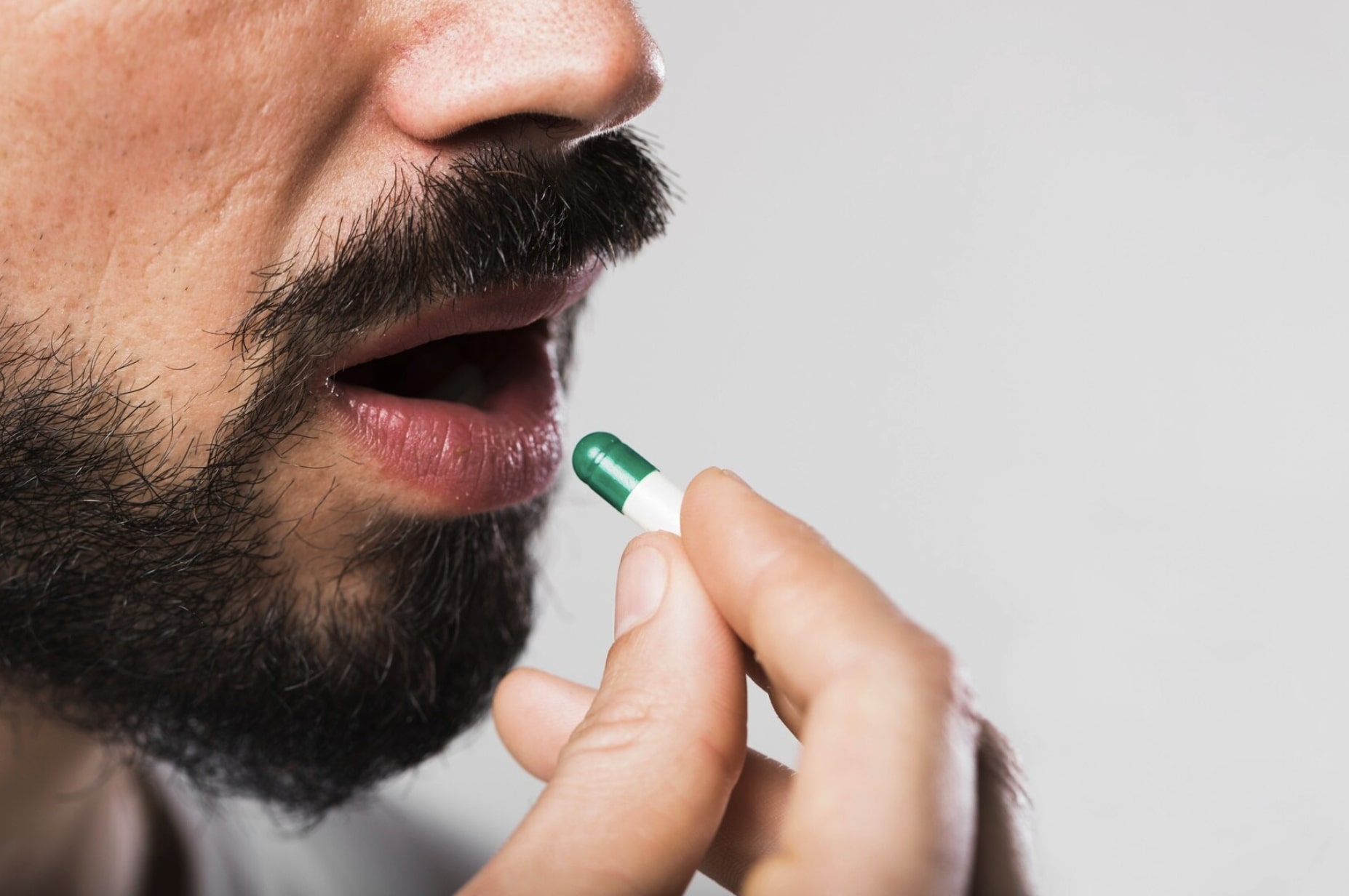As men age, they often experience a gradual decline in testosterone levels, which can lead to a range of symptoms that impact their overall health and well-being. This hormonal shift is a natural part of the aging process, but it can leave many men wondering when the right time is to consider testosterone replacement therapy (TRT). The answer to this question depends on various factors unique to each individual.
Determining the optimal age to start TRT requires a comprehensive evaluation by a qualified healthcare provider who specializes in hormone health. This assessment involves considering not only a man’s age but also his symptoms, lifestyle, and overall health status. Recognizing the signs of a potential deficiency can help men make informed decisions about when to seek treatment and take proactive steps towards improving their quality of life.
Understanding Testosterone and Age-Related Decline
Testosterone is the primary male sex hormone responsible for the development and maintenance of masculine characteristics, such as muscle mass, bone density, and body hair. It also plays a crucial role in regulating libido, mood, and overall energy levels. As men age, their testosterone production naturally begins to decrease, typically starting in their late 20s or early 30s.
This age-related decline in testosterone, often referred to as andropause or male menopause, is a gradual process that occurs at a rate of approximately 1% per year after the age of 30. While this may seem like a small amount, the cumulative effect over time can lead to a significant decrease in testosterone levels, resulting in a range of symptoms that can impact a man’s quality of life.
The rate of testosterone decline varies among individuals, with some men experiencing a more rapid decrease than others. Factors such as genetics, lifestyle habits, and overall health can influence the speed and severity of testosterone decline. As a result, some men may begin to experience symptoms of low testosterone earlier in life, while others may not notice any significant changes until they reach their 40s or 50s.
Signs You May Benefit from TRT at Any Age
While age is a significant factor in determining when to consider TRT, it’s not the only consideration. Men of any age who experience symptoms of low testosterone may benefit from treatment. Some common signs and symptoms of low testosterone include:
- Decreased libido: A persistent low sex drive or lack of interest in sexual activity can be a sign of low testosterone levels.
- Erectile dysfunction: Difficulty achieving or maintaining an erection, even when aroused, may indicate a testosterone deficiency.
- Fatigue and low energy: Feeling tired, sluggish, or lacking motivation throughout the day, despite getting adequate sleep, can be a symptom of low testosterone.
- Mood changes: Low testosterone levels can contribute to mood disturbances, such as increased irritability, depression, or a general sense of apathy.
- Reduced muscle mass and increased body fat: Testosterone plays a key role in building and maintaining muscle mass. A decrease in muscle mass and an increase in body fat, particularly around the waist, may be associated with low testosterone.
These symptoms can also be caused by other underlying health conditions or lifestyle factors. That’s why it’s crucial to consult with a healthcare provider who can perform a thorough evaluation, including blood tests to measure testosterone levels, to determine if TRT is an appropriate treatment option.
When to Consider Starting Testosterone Replacement Therapy
The decision to start TRT should be based on a combination of factors, including age, symptoms, and overall health status. While there is no specific age at which men should begin TRT, there are some general guidelines that can help inform the decision-making process.
For most men, the effects of age-related testosterone decline become more noticeable in their 40s and 50s. This is often the time when symptoms such as decreased libido, erectile dysfunction, and fatigue become more pronounced and start to impact quality of life. Many men in this age group seek TRT to alleviate their symptoms and improve their overall well-being.
Some men may experience symptoms of low testosterone earlier in life, even in their 30s. In these cases, early intervention with TRT can help prevent the development of more severe symptoms and protect against potential long-term health consequences associated with prolonged testosterone deficiency.
Regardless of age, the decision to start TRT should be made in consultation with a qualified healthcare provider who specializes in hormone health. A comprehensive evaluation, including a thorough medical history and blood tests to measure testosterone levels, is essential to determine if TRT is an appropriate treatment option.
Benefits of TRT for Men of All Ages
TRT offers a wide range of benefits for men of all ages who are experiencing symptoms of low testosterone. One of the most significant benefits of TRT is the improvement in sexual function and libido. Testosterone plays a crucial role in regulating sexual desire and erectile function, and restoring testosterone levels to a healthy range can help men regain their interest in sex and improve their ability to achieve and maintain erections.
In addition to sexual health benefits, TRT can also have a positive impact on mood and cognitive function. Low testosterone levels have been associated with an increased risk of depression, irritability, and cognitive decline. By optimizing testosterone levels, TRT can help improve mood, reduce feelings of depression and anxiety, and enhance cognitive performance, including memory and concentration.
TRT can also have significant benefits for body composition and physical performance. Testosterone is essential for building and maintaining muscle mass, as well as reducing body fat. Men undergoing TRT often experience an increase in lean muscle mass, a decrease in body fat, and improved strength and endurance. These changes can lead to better overall physical function and quality of life.
Bone health is another area where TRT can offer significant benefits. Testosterone plays a role in maintaining bone mineral density, and low testosterone levels have been associated with an increased risk of osteoporosis and fractures. By restoring testosterone levels to a healthy range, TRT can help improve bone density and reduce the risk of osteoporosis-related complications.
Testosterone Replacement Therapy Frequently Asked Questions
How do I know if I have low testosterone?
The most accurate way to determine if you have low testosterone is through a comprehensive evaluation by a men’s health specialist. This evaluation typically includes a review of your symptoms and blood tests to measure your testosterone levels. Common symptoms of low testosterone include decreased libido, erectile dysfunction, fatigue, mood changes, and reduced muscle mass.
What are the benefits of testosterone replacement therapy?
Testosterone replacement therapy (TRT) can offer a wide range of benefits for men with low testosterone, including improved sexual function, increased energy and vitality, better mood and cognitive function, increased muscle mass and strength, reduced body fat, and improved bone density. By optimizing testosterone levels, TRT can help men feel their best and enjoy a higher quality of life.
Is Testosterone Replacement Therapy Right for You?
Deciding whether TRT is the right choice for you involves a careful consideration of your individual circumstances, including your age, symptoms, overall health, and personal goals. It’s essential to have an open and honest conversation with a qualified healthcare provider who specializes in hormone health to determine if TRT is an appropriate treatment option for your specific situation.
During your initial consultation, your healthcare provider will conduct a thorough evaluation, which typically includes a comprehensive medical history, physical examination, and blood tests to measure your testosterone levels. This evaluation will help identify any underlying health conditions that may be contributing to your symptoms and determine if low testosterone is indeed the root cause of your concerns.
If you suspect you may have low testosterone and are interested in exploring TRT as a potential treatment option, the first step is to schedule a consultation with a qualified men’s health specialist. At Gameday Men’s Health, our team of experienced healthcare providers specializes in the diagnosis and treatment of low testosterone and other men’s health concerns. Contact us today to schedule your appointment and take the first step towards optimizing your testosterone levels and overall well-being.











